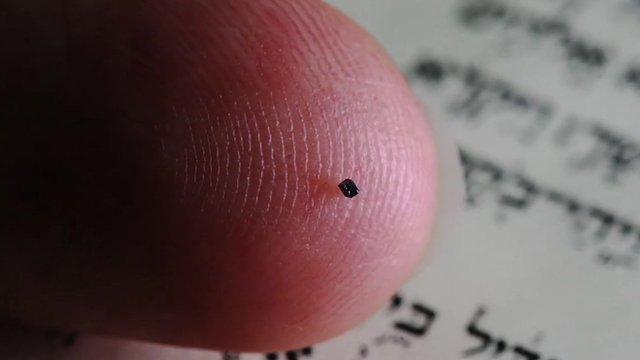Oldest most complete Hebrew Bible sells for $38m at auction
- Published
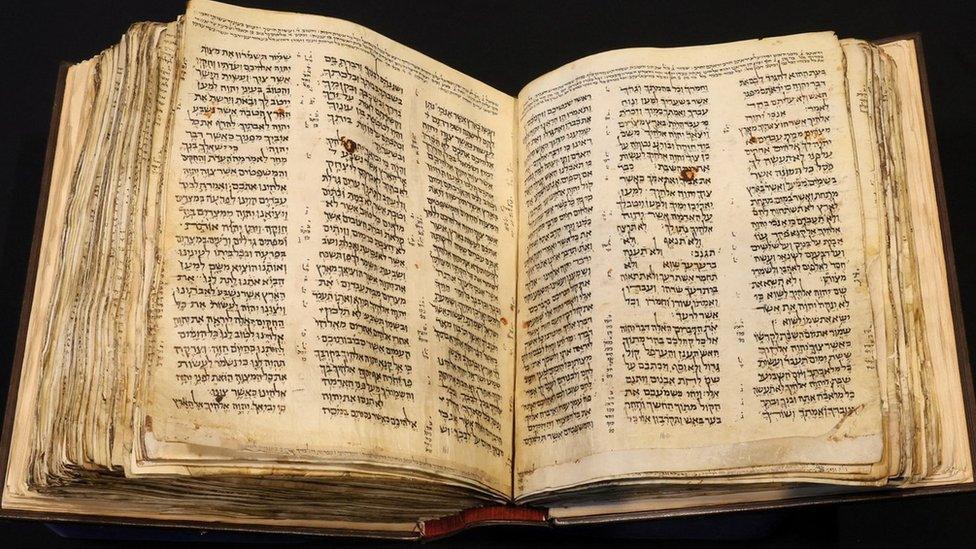
It is the oldest single manuscript containing all books of the Hebrew Bible with their punctuation, vowels, and accents
The oldest most complete Hebrew Bible has been bought at Sotheby's New York for $38.1m (£30.6m), becoming the most valuable manuscript sold at auction.
The Codex Sassoon is thought to have been written about 1,100 years ago.
It is the earliest surviving example of a single manuscript containing all 24 books of the Hebrew Bible with punctuation, vowels and accents.
US lawyer and former ambassador Alfred Moses bought it for the ANU Museum of the Jewish People in Tel Aviv, Israel.
"The Hebrew Bible is the most influential in history and constitutes the bedrock of Western civilisation," Mr Moses said in a statement.
"I rejoice in knowing that it belongs to the Jewish people. It was my mission, realising the historic significance of Codex Sassoon, to see it resides in a place with global access to all people."
The winning bid exceeded the $30.8m paid by Microsoft co-founder Bill Gates in 1994 for the Codex Leicester, Leonardo da Vinci's scientific notebook.
But it fell short of the record for a historical document sold at auction set by hedge fund manager Ken Griffin, who bought a first-edition printed copy of the US constitution for $43.2m two years ago.
The Codex Sassoon is named after a previous owner, David Solomon Sassoon, who acquired it in 1929 and assembled the largest and most important private collection of Hebrew manuscripts in the world at his home in London.
The text of the Hebrew Bible - whose 24 books make up what Christians call the Old Testament - remained in flux until the early Middle Ages, when Jewish scholars known as Masoretes began to create a body of notes that standardised it.
The Aleppo Codex, which was assembled around 930, is considered the most authoritative Masoretic text. However, damage from a fire in the Syrian city of Aleppo in 1947 means that only 295 of the original 487 pages survive today.
The Codex Sassoon, which carbon dating shows was created around 900, is missing only 12 pages, according to Sotheby's.
"It presents to us the first time an almost-complete book of the Hebrew Bible appears with the vowel points, the cantillation and the notes on the bottom telling scribes how the correct text should be written," Sharon Mintz, senior Jewish artefact specialist at the auction house, said in March.
Centuries of annotations and inscriptions reveal that the manuscript was sold by a man named Khalaf ben Abraham to Isaac ben Ezekiel al-Attar, who later transferred ownership to his two sons, Ezekiel and Maimon.
In the 13th Century, the codex was dedicated to a synagogue in Makisin, in north-eastern Syria.
After the town was destroyed by either by the Mongols later in the 13th Century or by the Timurids at the start of the 15th Century, the manuscript was entrusted for safekeeping to Salama ibn Abi al-Fakhr. It then disappeared in history for 500 years.
The Codex Sassoon's most recent owner was Swiss investor Jacqui Safra, who bought it for £2m ($2.5m) at auction in London in 1989.
Related topics
- Published22 March 2023
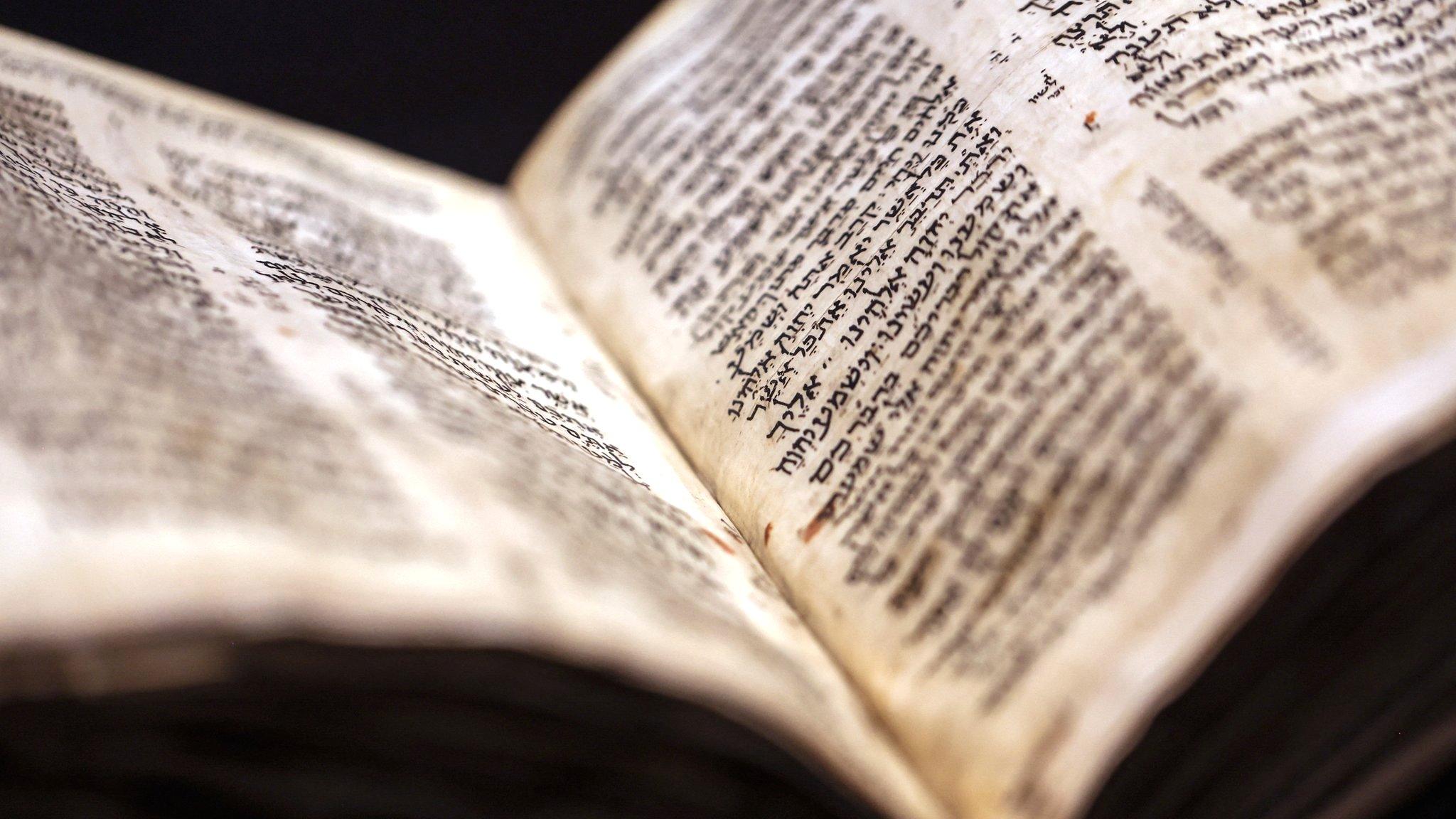
- Published22 April 2021
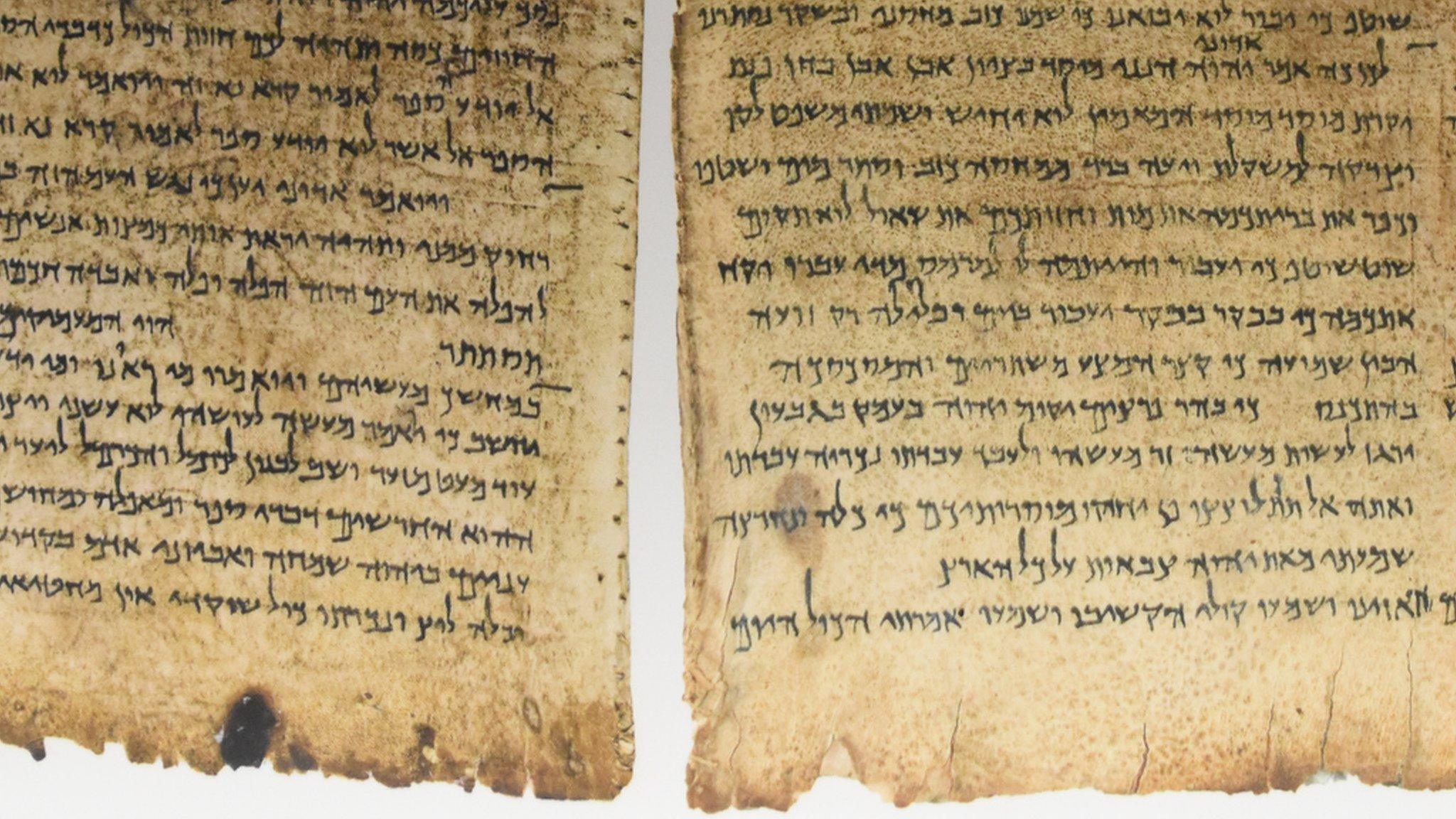
- Published16 March 2021

- Published22 January 2018
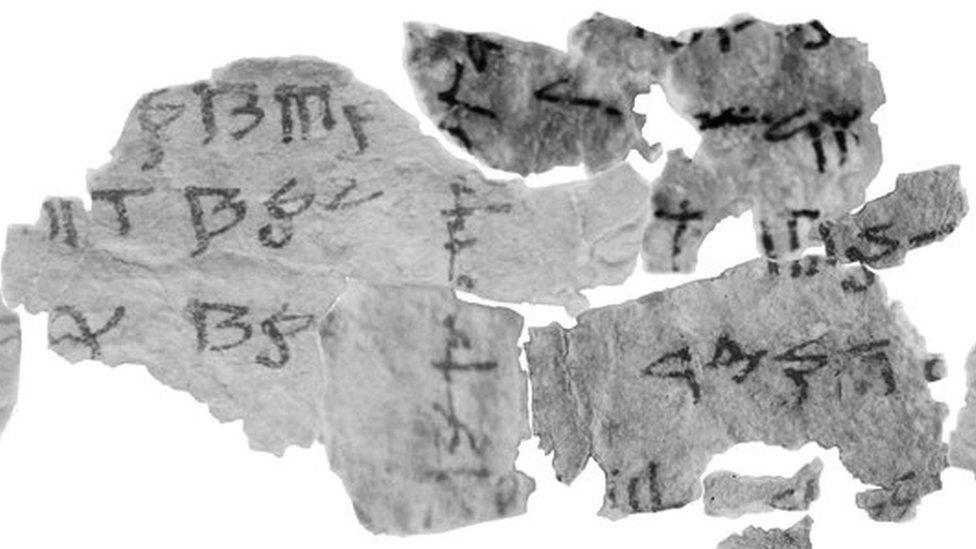
- Published9 February 2017

- Published26 April 2015
